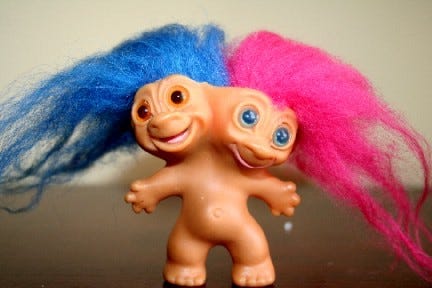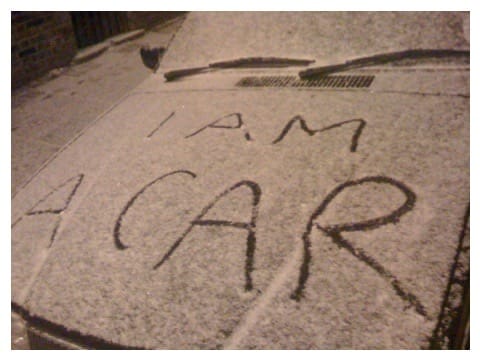Trolling isn’t new — but the hierarchy has changed.

Back in the good old days of message boards and forums, trolls were a fact of life. In fact, if you were a twee 14-year-old with deeply passionate feelings about Unreal Tournament, perhaps the benefit of retrospect reveals you too occasionally verged upon such obnoxious characteristics.
Because all members of a forum were generally just normal people and an account was just an account, unless things got really bad, you just sort of learned to live with it. If nobody fed the troll, you could all get on with the discussion.
There was something democratic in all this — together, the majority set the tone, moderators helped define the house rules. Generally, the role in the hierarchy was defined by how much you contributed to the community’s success (or otherwise.)
As the internet became more mainstream and normal sites and journalists moved online, comment threads soon surfaced similar examples of, shall we say, “enthusiastic disagreement”. But crucially, journalists sat in a different tier of hierarchy. They could plug their ears, mentally invoking the chasm of writer/reader divide to distance themselves from the comments.
Twitter is re-aligning the hierarchy of the reader/ writer relationship. Because any tweet sits homogeneously as the same unit of publishing, it’s a return to the forum.
And so, the global mainstream community is now being confronted with something more like the old dynamic of trolling. Even though most of it won’t be familiar with the old ways of dealing with these things, I think it’ll inevitably have to return to the time-honoured solution to disruptive human influence.
When someone’s disrupting a conversation and their goal is disruption alone, going off the rails to join them only achieves their goal. You’re simply with them or against them.
So report them to the moderators, spend your attention elsewhere and realise their input will never disappear. Not because they are part of internet culture but because they are part of human culture. And that’s much harder to escape.
The internet helps us see the world in a broader, truer light — and that’s not always pretty.

